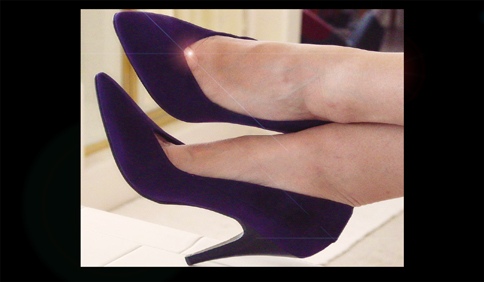CONTENTS
You’re Not the Boss of Me
Nobody is in charge of the big queer tent (BQT). The BQT is a collective construct made up of what everybody brings inside it.
Anybody who wants to be in the BQT is inside the tent; all that’s left is the arguing by those who want to exclude others based on their definitions of who is more or less queer. Good luck to anyone who thinks they can stop someone who claims a queer identity from doing so. But the futility of the task doesn’t stop some people from trying. In particular, of late, there has been an attempt by a few to separate queer women writers from each other along the lines of their sexual identity or their sexual history. I believe that this stems from buying into the Big Lie. I’ll return to that.
I’m Not the Boss of You
I don’t claim to know all the corners of the BQT. I only know the path I took to find it, the door I came in through, and the people I’ve met inside. I have learned who I am, and named my identity.
No one will tell me my place. No one will define me. No one will tell me I do not belong there. And that dignity is the right of every person in the Big Queer Tent.
My queer identity is strongly Lesbian and Feminist, and within the Lesbian part of the BQT I have found a beauty and diversity like fractals: a wealth of depth that is infinitely large. I can find support for my identity as a lesbian, a femme who looks like a soccer mom, a woman with hot flashes, a mom raising a boy and a girl, a queer writer who’s tired of taking crap for writing romance, a lesbian reader who’s so over the white male canon, a survivor of sexual abuse. Because we’re all also women, I find affinity, humor, support, understanding, and sometimes just a simple “attagirl” for all the ways that women are oppressed every day of our lives. I don’t live my entire life inside the BQT, either. There’s laundry, kids, flat tires and Pink Floyd, just for starters. But for the most part, my various identities are all within the BQT, somewhere, if I want to look.
May I Come In?
It is equally true that there are communities inside the BQT that I cannot belong to, even if they are made up of other lesbians. With few exceptions, I am at once living my truth and a guest in someone else’s truth, their history and culture.
For example, lesbians who have served in combat will share a history that I can only guess at. Their need to bond and support each other is understandable. If I wanted to learn about their experiences in order to create a realistic character, I might ask if I can come inside their tent, just one of many tents within the BQT. Mutual trust forms, and friendship, and years pass, and I know their lives.
I am still not one of them. I can never be one of them. I am, at best, a treasured guest. Every time I put pen to paper I am appropriating their culture. I should never forget that. If I in some way did not behave the way a guest should – if I wrote in a way that demeans their truth, if I spoke as if I were one of them – I would hope to be taken aside by one of my hosts, not pilloried in public.
Hosts Get to Say No
There is one important fact at the outset: when I asked to come inside their tent they would have had every right to say no. This is a tightrope of life when we must respect the right of any oppressed group to close their ranks to heal and support each other, and any group inside the BQT automatically fits the definition. After all, not every instance of exclusion is about hate or ignorance.
There is also the reality that while we have reason to fear our queer and lesbian culture being appropriated, the truth is an artist is often a guest in someone else’s culture even inside the BQT. I pause here to simply say, tangentially, be a good guest, be a good host, and much of life in the BQT will more thoughtful and less incendiary.
What We Have in Common
It is equally true that there are communities inside the queer tent that reflect only one piece of my identity. One of my favorite events of the year celebrates lesbian fiction, hosted by a group devoted to the visibility of lesbian fiction, run primarily by women who identify as lesbians. Every year for a blissful week I share that common ground, and everyone at that event is showing the love for reading and writing lesbian fiction. The event is overwhelmingly attended by women who identify as lesbian, but it is open to all who love the books.
But just as before, I am a guest in other cultures in the event’s wide-ranging tent. Over the years, I could have been a guest with lesbian first responders, bisexual women, gay men, lesbians who were once married to men and now have the grandbaby pictures to prove it, women of color, European lesbians, disabled women, lesbians who lived through Stonewall, millennial dykes and lots of other identities within identities. These are all people who have identities that overlap with mine and who differ from mine. I am on a journey with them and their guest all at once.
We are there to celebrate what we have in common – our love of the books that are about lesbians – not to pick over our differences as people.
This is the beauty of our connection at this conference – the open sharing of experiences, the casual mentoring and advice. It’s also true that the event has one kind of diversity and lacks in many others. I would welcome a tent that stretched even farther, as long as everyone is there for the good books about lesbians.
Keeping it “Real”
If we know who we are and respect that other people have a right to define themselves too, then why would anyone be spending energy dividing one kind of queer woman from another by using words like “real”? However, if a definition of “lesbian” matters to you, then state your definition and pitch your tent inside the BQT. No one is stopping you. No one is in charge of the BQT. You might find some who agree with you. Don’t expect help, however, if your plan is to build up your tent by tearing down those built by others who define it differently, and who make their tent more welcoming. The BQT is a construct of what people bring to it. So far, love and inclusion are winning.
That said, no one can deny that the journey of a woman who knew very early in life that she was a lesbian was different from that of a woman who came to that realization later in life. It is both understandable and supportable that both types of lesbians could at times want to gather only with those who had had the same journey. Doing so should not automatically be seen as hateful toward the other – unless their actions declare it so, by using words like “real lesbian” and implying one kind of queer woman is more queer and her experience more real than another, as has apparently been done yet again. Nothing new under the sun.
The Big Lie
I will insist to my last breath that no journey to being a lesbian is more valid, more “real” than another. To believe there is a “real lesbian” and that other queer women are taking something from you by falsely claiming to be lesbians is buying into The Big Lie. It’s the same lie that makes some lesbians also derisive of bisexual and transgender women. We know this lie, and yet it comes around in new garb and some of us fall for it all over again.
If we lift up another oppressed person, we are pulled down.
If we give dignity to another person, we are reduced.
If another group is given visibility, our light is dimmed.
If They have more, We have less.
This is the lie that the patriarchy, the majority, those who control the status quo want us to believe. It sets women against women, the have-nots against the have-nots. It makes women push each other down – saving bigots the effort. This is the lie that feeds racism, sexism, religious bigotry, even the ridiculous fear that if gays marry, straight marriages are damaged.
“Not real” lesbians writing books about lesbians means “real” lesbians are somehow defrauded is a kind of poison that weakens only ourselves. The only winner is the prevailing majority, which goes on unchanged, continues to oppress, withhold rights, and regard the work of all queer women as lesser.
The Pie is Not Finite
If we believe that the pie is finite and our only real choice is dividing it up among ourselves over and over, then we will always fall for the trap of thinking that if They have more We will get less. But the pie is not finite. If the visibility of transwomen and bisexual women truly comes at the loss of visibility for lesbian women in the world, then it is because men and straight society are not giving up the overwhelming space they take up. What. A. Shock.
Keep it Real
If there is one thing that equality has meant to me all along, it’s that women don’t accept from each other what we would never tolerate from men. I wouldn’t let a man define what it means to be a lesbian for me, so I will not let another woman define it either. I get to define myself. And if I claim that right for myself, I can’t deny it to anyone else. At the same time, how I got myself into the Big Queer Tent can’t be the only way either. Other people’s journeys are their own.
We name our identity and act as guests in other people’s realities and cultures at the same time. This is a dance, this is respect, this is empathy, this is what living in a big queer tent that is inclusive looks like to me.
Additional Blogs (in case my feelings aren’t already quite clear)
- Casting the First Tweet – Why Someone Else’s Gender Is Not About Me
- Disposable and Invisible = Unsafe
- To the Girly-Girls Who Like Girls
- Talk, Love, Listen – Joan Nestle, in Her Own Words

